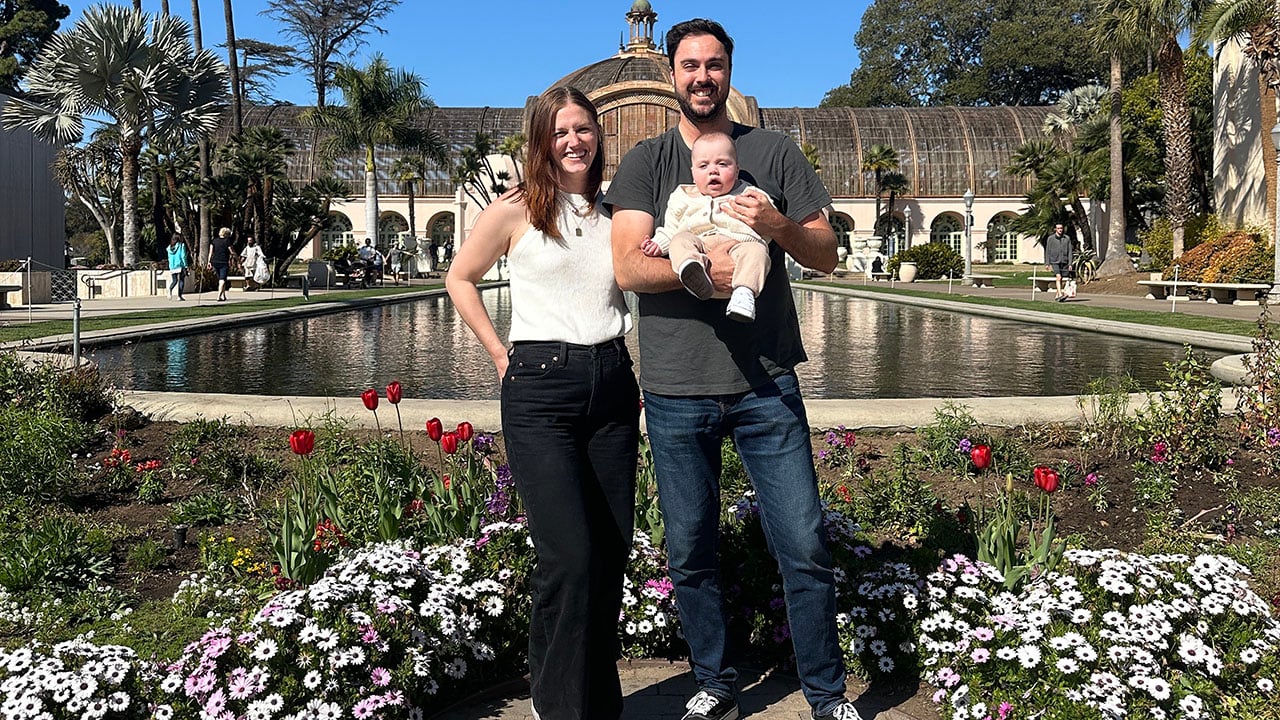TMS Therapy in San Diego
UC San Diego Health is the leading provider of transcranial magnetic stimulation (TMS) therapy in San Diego, offering advanced treatment options for depression.
As the first provider in the region to offer TMS, we have helped countless patients significantly improve their mental health.
We offer:
- One of the largest and most advanced TMS clinics in Southern California
- Multiple TMS treatment options, including Theta Burst, BrainsWay Deep and MagVenture
- High patient satisfaction and success rates
Take the first step toward relief today.
Call 858-207-0938 for a consultation
What Is TMS Therapy?
TMS therapy is a non-invasive, FDA-approved treatment for depression. It uses magnetic pulses to stimulate specific areas of the brain associated with mood regulation. This innovative therapy is particularly effective for individuals who have not responded to traditional treatments like antidepressants and talk therapy.
Why Choose UC San Diego Health for TMS Therapy?
At UC San Diego Health, we go beyond standard TMS treatment to provide leading-edge, research-backed care. Here’s what sets us apart:
- Pioneering Leader: UC San Diego Health is at the forefront of TMS therapy in San Diego.
- Personalized Protocols: Our specialists fine-tune treatment parameters based on the latest research, optimizing results for each patient.
- Comprehensive Care: We offer an integrated care approach and coordinate TMS therapy with psychotherapy, medication management and lifestyle interventions for holistic wellness.
- Innovation: Our patients have access to clinical trials and new therapies that are not available at other clinics.
- Convenient Locations: With clinics in La Jolla, 4S Ranch and Hillcrest, patients travel from Encinitas, Carlsbad and throughout San Diego County, Temecula and Orange County to receive our expert care.
- Insurance and Financial Aid: We accept most major insurance plans and offer financial assistance options.
Video: How TMS Therapy Is Used to Treat Severe Depression

Learn how transcranial magnetic stimulation (TMS) at UC San Diego Health helped a patient with treatment-resistant depression. It was a life-changing event, she says.
Who Is TMS Therapy For?
TMS therapy is recommended for adults 18 and older with:
Treatment-resistant depression
Patients with treatment-resistant depression have not responded well to antidepressants and talk therapy.
Obsessive-compulsive disorder (OCD)
TMS is FDA-approved for OCD. Coverage depends on your insurance.
Emergency Help Available 24/7
For a mental health emergency, call 988 or go to the nearest emergency room. 988 is the national suicide and crisis hotline.
You can also call the San Diego Crisis Line at 888-724-7240 for confidential, free support.
Advantages of TMS Therapy at UC San Diego Health
Our patients experience significant improvements in their depression symptoms, with many reporting lasting relief. UC San Diego Health’s TMS program consistently achieves high treatment success rates.
What to Expect
At UC San Diego Health, we personalize every TMS treatment plan to ensure the best possible outcome for each patient. While individual experiences may vary, the process generally follows these key steps:
- Initial Consultation and Evaluation: A comprehensive assessment to determine if TMS is the right treatment for you.
- Personalized Treatment Mapping: Your provider will create a customized treatment plan, which can be adjusted based on your response.
- Daily Sessions: Treatments are typically scheduled five days a week, lasting 20 to 40 minutes per session, over 4 to 6 weeks.
TMS is a non-invasive, outpatient procedure that does not require anesthesia or sedation. During each session, you will remain awake and comfortably seated in a recliner while the treatment is administered.
Side effects are generally mild and well-tolerated, with the most common being temporary headaches or scalp discomfort. These effects usually subside within 24 hours.
There is no downtime with TMS — you can resume normal daily activities immediately after each session. Unlike some other therapies, TMS does not cause memory loss.
Take the Next Step
UC San Diego Health is the top choice for TMS therapy in San Diego.
Call 858-207-0938 to schedule a consultation
Insurance Coverage and Cost of TMS Therapy
Most major insurance plans cover TMS therapy for treatment-resistant depression. Costs vary based on insurance and the treatment protocol. We offer financial assistance and payment plans. You may also have free treatment opportunities through participation in a clinical trial or research study. Have questions about insurance coverage? Call 858-207-0938 for assistance.
Frequently Asked Questions About TMS
Psychiatrists Specializing in TMS
Our board-certified psychiatrists are leading experts in TMS therapy, ensuring the highest standard of care. As part of a top-ranked research institution, we continuously innovate and apply the latest breakthroughs in neuromodulation science.



